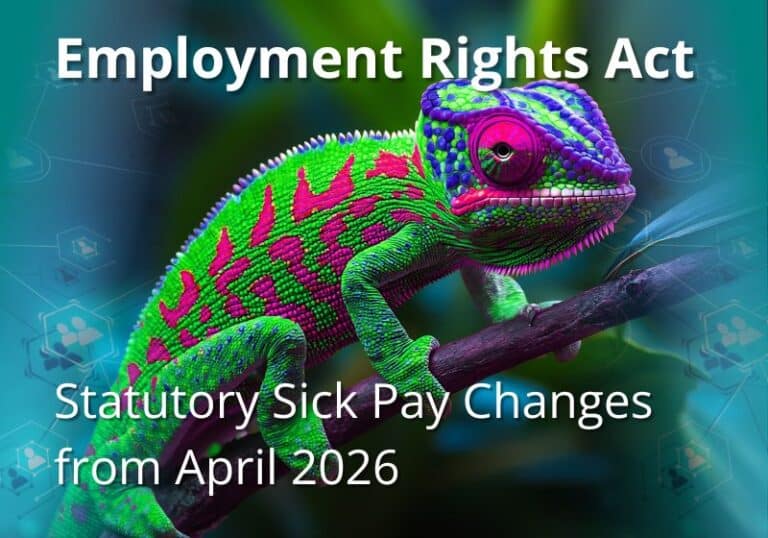Big Changes Coming to Family Leave Policies in 2026

The Employment Rights Bill 2026 will bring some of the most significant changes to family-friendly employment law in recent years. Designed to modernise how employers support working parents and carers, these upcoming family leave reforms will create new day-one employment rights and greater protection for employees during key life events such as becoming a parent or experiencing bereavement.
For SMEs, understanding these changes early is essential. Preparing now will help businesses stay compliant, manage workforce planning effectively, and foster a genuinely family-friendly workplace culture that supports staff and strengthens retention.
Paternity Leave
From 6 April 2026, paternity leave will become a day-one employment right, meaning eligible employees will no longer need 26 weeks’ continuous service before qualifying. This change will allow new fathers and partners to take time off from the very start of their employment, ensuring immediate access to family support during the early stages of parenthood.
Under the new rules, employees will also be able to take paternity leave after shared parental leave, closing a loophole in the current system that removes paternity entitlement once shared parental leave has been used. In addition, separate legislation not yet in force will grant bereaved fathers and partners extended paternity leave if the mother or primary adopter dies within the first year of the child’s life.
Although there have been further recommendations from the Women and Equalities Committee — including extending paternity leave to six weeks, increasing statutory pay to 90% of average earnings, and even making part of it compulsory — these proposals have not yet been adopted.
From an HR and management perspective, this development means it will become increasingly important for employers to review their family leave procedures. SMEs should ensure that policies, induction materials and HR systems reflect these new rights, and that managers are trained to handle paternity leave requests from employees who may have only recently joined the business.
Parental Leave
The Employment Rights Bill 2026 also extends unpaid parental leave to become a day-one right. Currently, employees must have completed one year of service to qualify. From April 2026, all employees with parental responsibility will be entitled to take up to 18 weeks of unpaid leave per child, available until the child turns 18.
This change gives parents more flexibility to balance work and family life from the outset of their employment. However, for small businesses, this may require adjustments to workforce planning and scheduling. Employers will need to review their existing policies, ensuring that references to service requirements are updated, and that HR systems can manage these new entitlements accurately. It’s also a good opportunity to remind line managers how unpaid parental leave differs from other forms of statutory family leave, such as maternity or shared parental leave.
Bereavement Leave
Another key feature of the family leave reforms is the introduction of a new day-one right to bereavement leave, which will broaden the scope of who is entitled to take time off following a loss.
Currently, only parents who lose a child under 18, or experience a stillbirth after 24 weeks of pregnancy, are entitled to two weeks’ statutory parental bereavement leave and pay. The new right will extend this entitlement to include a wider range of relationships, including those who experience pregnancy loss before 24 weeks.
The new leave will be unpaid and will last for at least one week. Details will be confirmed following a Government consultation expected in autumn 2025, with the new provisions likely to come into force in 2027.
For SMEs, this change represents an opportunity to consider how compassionate leave is managed more broadly. While the statutory right will be unpaid, adopting a supportive and empathetic approach can make a significant difference to employee wellbeing and engagement. Employers may wish to explore offering enhanced bereavement support or signposting staff to wellbeing resources as part of their wider family-friendly workplace strategy.
Protection Against Dismissal
The Employment Rights Bill also strengthens protection against dismissal for pregnant employees and those returning from family leave. Once implemented, it will become unlawful to dismiss a woman while she is pregnant, on maternity leave, or within six months of returning to work, except in limited circumstances. The Government is also considering extending similar protections to employees returning from other types of family leave, such as adoption, shared parental, neonatal or bereavement-related paternity leave.
This development builds on the redundancy protection already in place since April 2024, which gives employees on maternity, adoption or shared parental leave priority for suitable alternative roles in redundancy situations for up to 18 months after childbirth or adoption. A consultation on the new dismissal protections is expected in autumn 2025, with implementation planned for 2027.
These additional protections reinforce the need for employers to manage dismissals involving pregnant employees or family leave returners with extra care. SMEs, in particular, should ensure that managers are aware of the enhanced legal risks and seek HR guidance before making any decisions in these circumstances.
Looking Ahead
Alongside these measures, the Government has launched a full review of the entire family leave and pay system — covering maternity, paternity, adoption, shared parental, neonatal and bereavement leave. This review began in July 2025 and will run for 18 months, with the aim of simplifying and modernising the system to better support working parents and carers.
Although many of the new Employment Rights Bill 2026 reforms will not take effect until 2026 or 2027, businesses are strongly encouraged to start planning now. Reviewing and updating policies, communicating upcoming changes to employees, and training managers to handle sensitive situations such as pregnancy announcements or bereavement will all help create a compliant and supportive workplace.
Supporting working parents is not only a matter of legal compliance — it’s good business practice. A workplace that values family life tends to enjoy stronger staff loyalty, lower turnover and higher morale. By getting ahead of the upcoming reforms, SMEs can demonstrate their commitment to doing the right thing for their people while ensuring they remain legally compliant.
At HR:4UK, we’ll continue to keep you informed as further details emerge and consultations progress. If you’d like tailored support reviewing your current family leave policies or preparing your business for the Employment Rights Bill 2026, our team of HR experts is here to help.
Angela Clay
A qualified employment law solicitor and our managing director, Angela has unparalleled legal expertise and decades of experience and knowledge to draw from. She’s a passionate speaker and writer that loves to keep employers updated with upcoming changes to legislation, and is a regular guest speaker on BBC Leicester Radio.




